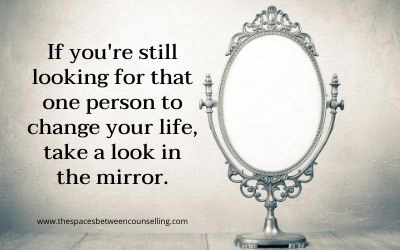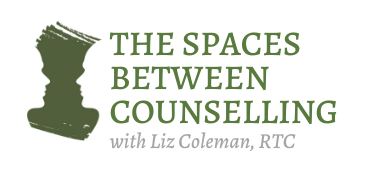“One day your prince will come” and other Fairy tales we were taught growing up.
Maybe you believed them, maybe you still do or maybe you don’t. But it’s what the movies and advertising are continuing to teach. “You are not enough if you’re not beautiful and with someone successful or successful and with someone beautiful.” But don’t worry there’s someone out there who will save you.
Ha! No there isn’t. Sorry I know that’s tough to hear.
Yes I’ve grown jaded of those sentiments. AND at the same time I harbour hopes and romantic dreams. How have I learned to ‘marry’ the two?
Thankfully I learned this:

Yes, that’s right, YOU. You are you’re own saviour.
We all carry beliefs or dreams about what relationship should be, fairy tale or not, and those beliefs are what become…
Your emotional baggage in Intimate Relationships
We bring into our adult relationships emotional baggage in the form of pains, hurts and wounds stemming from childhood experiences. We then, unknowingly, make our partners responsible for removing that pain and healing all our wounds. For example:
“You should know what I want without me having to ask.”
“If you loved me, you would/wouldn’t do that.”
“We shouldn’t have to argue in a relationship.”
This unconscious habit becomes a central theme in relationships and often leads to disappointment. No one can save you and take away the pain, that’s the Fairy Tale fantasy. But putting all our hopes and expectations of that into the relationship will eventually destroy it.
To unravel and reveal these expectations and needs we need to look into our past… when we were young, impressionable and eager to please. Finding the childhood root of these needs then helps you discover the ways you learned to cope within your family system (rules). When you find your coping strategies that are still running, and creating the behaviour that’s causing the pain, you can then make a choice to continue them or stop repeating the past.
Conflict is Repeating the Past
Because our personalities are shaped by early family and childhood experiences, we seem doomed to repeat the mistakes and relive the pains of the past. In fact, we harden the link to the past by staying safe and fearing to take chances when we feel anxious and vulnerable. Trying something new leads to a new understanding but fear often forces us to revert to the old, familiar patterns of behaviour that just keeps creating the familiar pain. It’s a cycle that feeds itself.. one I call the Insanity Loop (stay tuned for more about the Insanity Loop process).
When these familiar, old behaviours do not help with our problems we don’t try something new we only try harder using the same old methods. Which brings us the same experience we were trying to avoid in the first place. After a time of this repetitive cycle something ultimately breaks down in the relationship: your partner leaves, or you leave your partner, or your partner learns to fight back even more effectively.
My Partner is the Problem
And other myths like this one, are what continue to break down the relationship.
Instead of facing the problem in ourselves we become convinced that the partner has been the problem all along. Suddenly we’re very insightful about his/her issues and shortcomings, and when nothing seems to change (as is impossible when we’re looking for saving in the wrong place) we decide that the only way to correct the relationship is to start over with a new partner. We lie to ourselves that we will be different and someone else other than our current partner really and truly will understand us. Unfortunately, this idea is encouraged by well-meaning friends and relatives and so we leave the old relationship behind. After a time grieving the loss of the relationship we begin the Fairy Tale relationship search again.
Eventually we find that Prince or Princess and “fall in love”. After the infatuation and honeymoon is over though, the everyday grind of being in a relationship begins. We have come full circle now and begin to experience some of the same problems as with the last partner.
Your Partner’s Emotional Baggage
As much as it isn’t all your partners problem it isn’t all your own either. It’s helpful to remember that your partner also carries their own emotional baggage of wounds and hurts. Our partners are just as driven to finding a saviour in us as we are hoping to find in them. Remembering this in a compassionate way leads to more understanding and less conflict and pain.
The fact that the other is opposite to you is the attraction and draw of a new partner. Because the fantasy insists that in order for someone to save us they must have ‘strength’ that we don’t. And be able to provide us with things that we cannot provide for ourselves. Meaning we’re unconsciously looking for a balance of insecurities in a relationship.
The Challenge is…
To recognize and remind ourselves that our partner’s behaviours are NOT the source of our unhappiness. And to constantly practice it by changing our behaviour on a daily basis. When we change our own behaviour, the relationship will change; if we are different, our partners cannot remain the same.
Change Your Behaviour by Changing Your Mind
- Take responsibility for our own behaviour, moods and fears.
- Recognize that what upsets us in our partner has more to do with our own fears than with them.
- Remember “I am never upset for the reason I think”. Be willing to let your partner off the hook and look at your triggers as stories and wounds from your past.
- Suspend your issues, thoughts and judgments and really listen with compassion to what your partner is saying.
- Risk giving and opening up to be able to receive.
- Ask yourself in the face of upset “do I want to be right or do I want to be happy?”
- Recognize that a good relationship is founded not on picking the right partner but being the right partner.
Trade Fairy Tale Fantasy for Something even Better.
The benefit and reward of giving up the Fairy Tale fantasy is a deepening of intimate connection in your relationship. By risking and letting go of old fears you lower your defenses and, thereby, open up to a healthy, thriving intimate partnership.
Choose Healthy Relationship Behaviours
- Mutual respect
- Honest Communication
- Emotional Support
- Equality
- Individual Development
- Playfulness
- Accountability
- Perseverance through difficult times
- One partner can be calm when faced with the other’s anxiety and misunderstandings
Unhealthy Relationship Behaviours
- Contempt: rolling eyes, disdain, dismissive behaviour
- Criticism: personal attack and blame
- Defensiveness: deny responsibility, make excuses
- Stonewalling: emotional withdrawal, refusal to listen
Liz Coleman, RTC, is a Registered Therapeutic Counsellor based in Surrey, BC. She specializes in anxiety, anger, insecurity, and relationship problems. If you have any questions about this article or would like to schedule an appointment, please call Ms. Coleman at (604) 809-8947 or use the convenient form on her Contact page.

